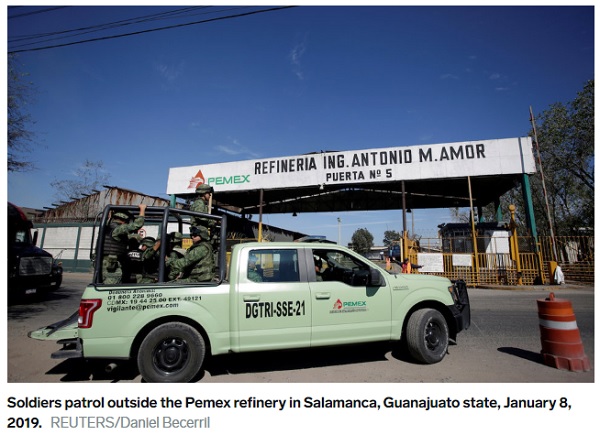On March 2, the 135th victim of a mid-January explosion in the town Tlahuelilpan in the central Mexican state of Hidalgo died at a hospital in Mexico City.
The blast occurred as people collected gasoline from a breached pipeline. Mexican soldiers were filmed looking on at the site hours before the explosion and were criticized for not clearing people away from the volatile spill.
Fuel theft has become widespread in Mexico, carried out by local residents and criminal groups alike, causing billions of dollars in losses for state oil firm, Petroleos de Mexico (Pemex), and for the government.
Mexico’s fight against “huachicol,” another term for fuel theft — practitioners of which are called “huachicoleros” — is not new, but Lopez Obrador has taken it on with new vigor, sending out thousands of troops in deployments that have created new flash points between Mexicans and their country’s security forces.
For some time, fuel theft was largely done by local thieves or by people from rural and isolated communities, who used stolen fuel for their own needs or sold it to supplement their income.
But in recent years, the lucrative nature of fuel theft — smuggling and reselling stolen fuel is often easier than illegal narcotics — has drawn in organized criminal groups, which bring a greater ability to corrupt and larger capacity for violence to the trade.
Organized criminal groups are able to use their connections to and control over law enforcement or Pemex workers to steal whole shipments in tanker trucks.
CLICK HERE FOR FULL ARTICLE ON BUSINESS INSIDER

